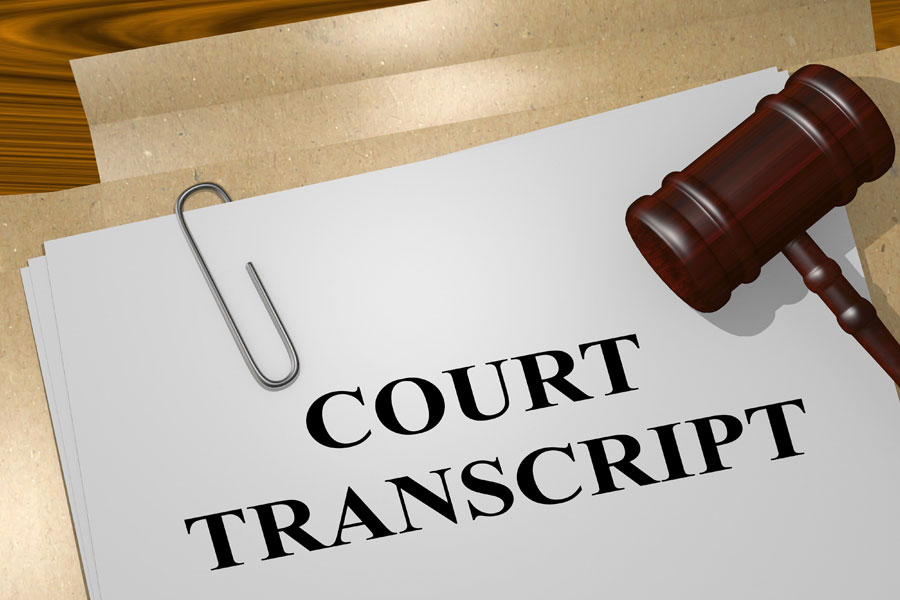The Importance of Legal Video Depositions in Modern Legal Providers: What You Must Know
Lawful video clip depositions have ended up being important in today's legal landscape. They supply a multidimensional sight of witness testaments that typical records just can not match. By catching both non-verbal and spoken communication, these depositions boost the total understanding of a witness's reputation. The performance of video depositions hinges on numerous factors, consisting of compliance with legal requirements and best techniques. Discovering these elements reveals their true value in contemporary legal solutions
What Are Legal Video Clip Depositions?
Legal video clip depositions function as a crucial device in the litigation process. They involve videotaping witness testaments in a video layout, capturing both spoken and non-verbal communication. This approach allows lawyers to document the temperament, expressions, and responses of witnesses, giving a richer context for the statement. Typically performed in a controlled setting, these depositions are led by attorneys who ask concerns while a court press reporter documents the discussion. The resulting video clip can be vital for trial prep work, as it allows legal representatives to assess the credibility of witnesses and refine their strategies. Furthermore, lawful video clip depositions can be utilized in different legal contexts, varying from civil conflicts to criminal cases. The visual and auditory elements of video clip depositions improve the presentation of evidence, making it a crucial element in the modern-day lawful landscape. Generally, they add substantially to the effectiveness and effectiveness of lawful process.

Advantages of Video Depositions Over Traditional Methods
Video depositions provide various advantages contrasted to traditional approaches of taking witness statements. One significant advantage is the capacity to catch both visual and audio elements, offering an extra comprehensive document of the witness's declarations. This double format boosts clearness and permits lawyers to reference certain subtleties throughout trial prep work. Additionally, video clip depositions assist in remote engagement, making it much easier for witnesses who may be inaccessible for in-person appearances as a result of geographical restraints or health issues.Moreover, video clip depositions can quicken the overall deposition process, decreasing the time and prices connected with travel and logistics. They also enhance access, as taped depositions can be easily shared among legal groups and referenced at any moment. This ease adds to better instance administration and prep work. In general, video depositions represent a modern-day, effective approach to collecting witness testimonies, straightening with the developing requirements of the lawful career.
The Role of Body Movement and Tone in Testimonies

In legal video depositions, body movement and tone play vital duties in communicating a witness's reliability and dependability. Nonverbal hints can provide understandings into a witness's mood, influencing exactly how their testimony is regarded. Recognizing the impact of these aspects is vital for lawyers and jurors alike when examining the integrity of a testament.
Nonverbal Interaction Insights
While verbal interaction is often emphasized in legal statements, nonverbal hints such as body language and tone play a crucial duty in sharing trustworthiness and feeling. Viewers of depositions might note that a witness's pose, motions, and faces can substantially affect perceptions of dependability. Constant eye get in touch with may signify self-confidence, while staying clear of look might suggest deceit or pain. Likewise, the tone of voice-- its pitch, rate, and quantity-- can give feelings of sincerity or uncertainty. Legal professionals have to be attuned to these nonverbal signals, as they often provide critical context that enhances talked words. Comprehending these subtleties can boost the performance of depositions and influence the outcome of legal proceedings.
Psychological Tone Effect
The emotional tone shared throughout legal testaments considerably impacts just how a witness is perceived. Body language, singing inflections, and facial expressions play essential functions fit the story of a statement. A witness exhibiting self-confidence through constant eye get in touch with and a tranquil tone can instill a feeling of integrity and interaction. Alternatively, signs of anxiousness, such as fidgeting or a shaky voice, might result in apprehension regarding their account. The subtleties of psychological expression can influence the analysis of realities, making it important for lawyers to acknowledge these signs. In video clip depositions, the acoustic and aesthetic parts combine, highlighting the value of emotional tone in communicating genuineness and truthfulness within the lawful process.
Reputation and Dependability
A vital consider developing trustworthiness and trustworthiness throughout statements lies in the witness's body movement and tone of voice. Viewers frequently rely upon non-verbal cues-- such as eye get in touch with, pose, and motions-- to analyze a witness's sincerity. A witness that keeps eye call and shows open body language might be viewed as even more truthful and dependable than one that stays clear of eye call or shows up closed off. Furthermore, intonation plays a necessary duty; a constant, tranquil tone can strengthen the reliability of the testimony, while fluctuations in pitch or quantity may raise doubts. Inevitably, the mix of body language and vocal tone greatly affects exactly how a witness's statements are obtained and translated in a legal context.
Ideal Practices for Carrying Out Video Depositions
Performing video clip depositions requires mindful planning and execution to assure a effective and clear discussion of testimony. First, it is essential to pick a peaceful, well-lit area to lessen interruptions and safe and secure ideal video top quality. The devices must be tested beforehand, including electronic cameras, microphones, and lighting, to stay clear of technological issues during the deposition.Next, events included have to evaluate more the style and treatments in advance, making certain that everyone comprehends their duties. The deponent must be briefed on the process, consisting of just how to respond plainly and concisely.Additionally, maintaining an expert demeanor throughout the session is necessary. This consists of avoiding speaking over one an additional and validating that all questions are guided suitably. Lastly, it is essential to tape-record the deposition in a layout that allows for easy playback and evaluation, maintaining the honesty of the statement for future usage.
Lawful Considerations and Compliance Issues
Exactly how do legal considerations and compliance More about the author concerns affect the performance of video clip depositions? Lawyers have to browse an intricate landscape of laws, ensuring that video clip depositions stick to administrative policies and requirements. Compliance with legislations worrying personal privacy, consent, and taping techniques is necessary. Obtaining specific approval from all celebrations involved is required to avoid legal repercussions.Additionally, the admissibility of video clip proof in court can pivot on compliance with step-by-step demands. Guaranteeing that the equipment used meets technological criteria is likewise crucial, as bad quality can undermine the deposition's reliability.Moreover, lawyers need to understand any kind of certain state laws that control video depositions, as these can differ significantly. Failing to attend to these considerations can not just jeopardize the honesty of the deposition however also influence the total situation strategy, inevitably impacting the customer's lawful click to read results.
How Video Depositions Influence Jury Understanding
While video depositions can act as powerful devices in lawful proceedings, their impact on court understanding is substantial. The aesthetic and auditory aspects of video clip recordings offer jurors with a much more comprehensive understanding of witness demeanor, reliability, and emotional actions. This multimedia approach can improve the jurors' ability to analyze the reliability of testimony compared to conventional text-based transcripts.Moreover, video clip depositions enable jurors to observe body language, tone of voice, and face expressions, every one of which can impact their analysis of the witness's statements. The existence of a witness on screen can humanize them, cultivating compassion and connection, which may guide jurors' viewpoints. On the other hand, a witness that shows up unreliable or incredibly elusive on video clip might bring about negative perceptions that influence a court's choice. Inevitably, the vibrant nature of video clip depositions plays a vital role fit just how jurors analyze evidence and reach their decisions.
The Future of Video Clip Depositions in Legal Practice
As advancements in technology continue to reshape the legal landscape, the future of video depositions is positioned for substantial advancement. Technologies such as man-made knowledge, digital fact, and boosted video clip conferencing tools are anticipated to enhance the deposition procedure and enhance availability. Legal professionals might make use of AI-driven analytics to examine witness reputation and instance toughness extra effectively.Moreover, the assimilation of digital truth might allow courts to experience immersive simulations of depositions, giving much deeper context and understanding. Additionally, the trend towards remote depositions is likely to linger, providing greater adaptability for lawyers and clients alike.As remote work ends up being progressively normalized, video depositions will likely come to be common method, decreasing prices and time restrictions connected with traditional approaches. In general, these technical improvements promise to boost the effectiveness, performance, and availability of video depositions in legal practice, inevitably changing exactly how attorneys get ready for trial.
Often Asked Inquiries
Just How Much Do Lawful Video Depositions Commonly Price?

Can Video Clip Depositions Be Made Use Of in Any Type Of Sort Of Case?
Video clip depositions can be used in various sorts of instances, consisting of civil, criminal, and family legislation. Their adaptability allows lawyers to present witness testaments successfully, adapting to the certain needs of various legal situations.
What Devices Is Required for a Video Clip Deposition?
To perform a video deposition, vital tools consists of a top quality cam, microphone, lights, and a reliable recording device. Furthermore, a computer system with editing software may be needed for post-production and formatting the final video clip.
How Long Does a Regular Video Deposition Last?
A common video deposition lasts between 2 to 4 hours, relying on the intricacy of the instance and the number of questions presented. Extensive sessions may happen, however breaks are generally incorporated for participant convenience.

Are Video Depositions Admissible in Court?
Video depositions are generally admissible in court, provided they stick to legal criteria and regulations of proof. Their usage improves quality and maintains witness testament, helping in the judicial process during trials and hearings. Lawful video clip depositions have actually become vital in today's lawful landscape. In addition, lawful video clip depositions can be made use of in different legal contexts, ranging from civil disagreements to criminal instances. In addition, video depositions facilitate remote involvement, making it much easier for witnesses that may be not available for in-person looks due to geographical restrictions or wellness issues.Moreover, video clip depositions can speed up the overall deposition procedure, decreasing the time and prices linked with traveling and logistics. Ensuring that the equipment used meets technological criteria is additionally important, as bad quality can weaken the deposition's reliability.Moreover, attorneys have to be aware of any kind of particular state laws that regulate video clip depositions, as these can vary greatly. Furthermore, the trend towards remote depositions is most likely to continue, offering higher flexibility for clients and lawyers alike.As remote work ends up being increasingly normalized, video clip depositions will likely become common practice, minimizing prices and time restraints associated with typical methods.